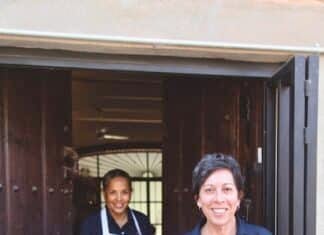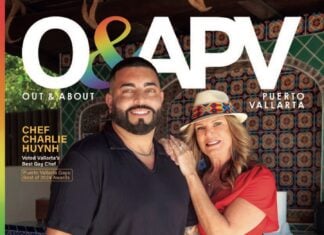Esta publicación también está disponible en: English Español
Responding to the health emergency declared by the World Health Organization, local health association SETAC has put in place a community protocol for monkeypox in the city of Puerto Vallarta that includes health promotion and prevention, primary care for affected patients, and confirmation of possible cases.
“Our protocol has three pillars: first, public diffusion of information on symptom identification and care methods; then, primary care and follow-up with patients in our offices; and, finally with case confirmation derived from the public health laboratory in El Remance,” explained Paco Arjona Barbosa, executive director of SETAC.
He stated that, up to August 22, there have been 386 cases of monkeypox officially diagnosed in Mexico, with Jalisco in second place nationally with 69 confirmed cases, although in Puerto Vallarta in the last week there has been one case reported per day, so it is very important to work with the health authorities to contain the outbreak, he said.
Arjona added that the community protocol has already begun in two nightclubs in the Romantic Zone, and is available to any commercial establishment that would like to put it in place, such as bars, restaurants, hotels, theaters, etc. For this, interested parties can contact the email address: contacto@setac.com.mx and via whatsapp 322-108-9066.
SETAC’s Dr. Alain Hernandez confirmed that the illness generally lasts 21 days and is transmitted by direct contact with the secretions of an ill person via mucus, skin lesions, respiratory droplets, or objects contaminated with body fluids, and can be prevented by avoiding direct physical contact with those who are ill or are suspected to have the illness.
“Sexual contact is an activity that must be taken into consideration, because monkeypox is contagious through close contact between two or more people. There are practices that can increase the risk of infection, such as sex with multiple partners or sex parties, because of the close contact between people,” Dr. Hernandez emphasized.
SETAC has published a mini-webpage at setac.com.mx/viruela with publicly available information as well as a community register of monkeypox cases, with the goal of comparing with the data from the Health Secretariat and demonstrating that the cases are not small nor isolated.
Finally, in the name of the LGBTQ+ Community, SETAC echoes the alarm raised by other civil organizations at the national level urging that the authorities train personnel at health institutions to offer information and care that is dignified, without stigma, and supports patients’ human rights. In particular, SETAC urges them to acquire preventative monkeypox vaccines and supply them to the population at highest risk.
Esta publicación también está disponible en: English Español













